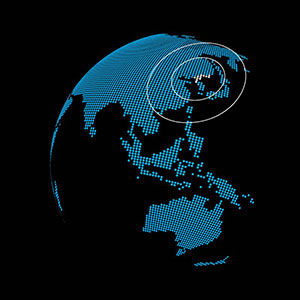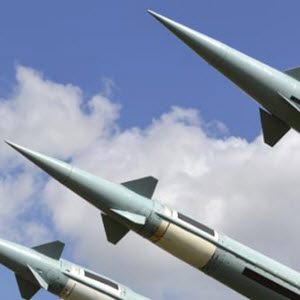Contact
Asia's Emerging Nuclear Dynamics
The Asia-Pacific will be the world’s most complex nuclear environment in the 21st century. The region’s existing nuclear powers are continuing to modernize and expand their capabilities, and there is a serious risk that several other states may seek to nuclearize in the coming years. Intensifying dyadic and triadic rivalries, the possible spread of nuclear capabilities, and the potential for further reductions to America’s nuclear arsenal will profoundly challenge U.S. policy, threaten stability throughout the region, and complicate the efforts of the international nonproliferation regime.
From 2013 to 2017, NBR worked with leading experts in the United States and in Asia to study the complexities of Asia’s nuclear environment. This project aimed to inform a deeper and more nuanced understanding of the complex dynamics influencing the Asia-Pacific’s current and future nuclear environment and their implications for U.S. strategy.
Made possible by the generous support of the John D. and Catherine T. MacArthur Foundation and the Carnegie Corporation of New York, this project produced several major publications and convened dialogues among scholars and policymakers.
Project Objectives
- Assess the Asia-Pacific’s current nuclear environment, focusing on how multiple nuclear rivalries are managed, and how the interconnectivity of Asia’s nuclear environment shapes the behavior of the region’s existing and potential nuclear powers
- Explore potential future paths for the Asia-Pacific’s nuclear environment, and identify what factors could drive nuclear use, stability, proliferation, restraint, or retrenchment
- Examine how foundational strategic concepts, such as deterrence, assurance, and reassurance, should be applied in a complex, multipolar environment
- Assess the implications for American nuclear strategy and policy, especially the goal of reducing the size of the U.S. nuclear arsenal, and propose recommendations for the policy community
- Evaluate options for regional actors to contribute to the stability of the Asia-Pacific environment and the health of the nuclear nonproliferation regime
Project Team
Principal Investigator
Matthew Kroenig, Associate Professor and International Relations Field Chair, Department of Government, Georgetown University
Senior Advisors
Aaron L. Friedberg, Professor of Politics and International Affairs, Princeton University
Robert Jervis, Adlai E. Stevenson Professor of International Politics, Columbia University
Ashley Tellis, Senior Associate, Carnegie Endowment for International Peace
Christopher P. Twomey, Associate Professor, U.S. Naval Postgraduate School
Project Lead
Tiffany Ma, Senior Director for Political and Security Affairs, The National Bureau of Asian Research




 Approaching Critical Mass: Asia’s Multipolar Nuclear Future
Approaching Critical Mass: Asia’s Multipolar Nuclear Future


 Asia in the Second Nuclear Age
Asia in the Second Nuclear Age
